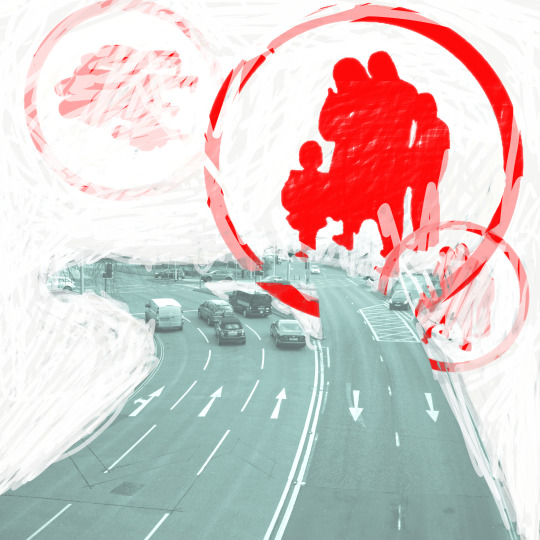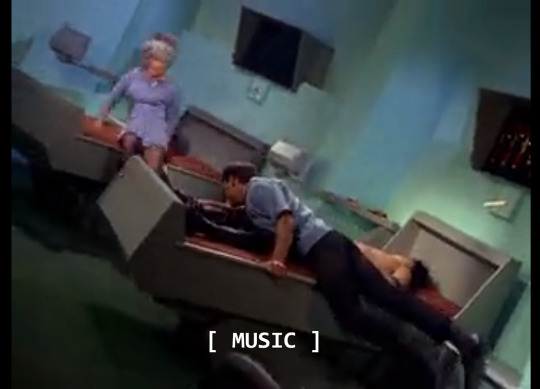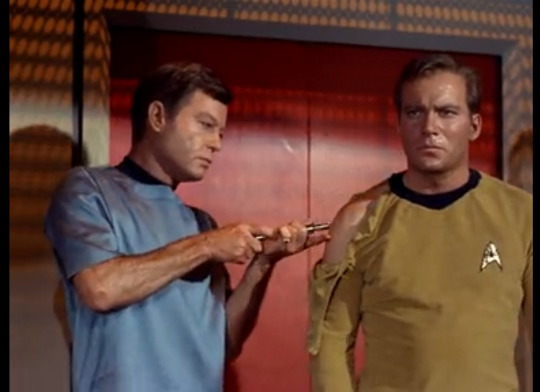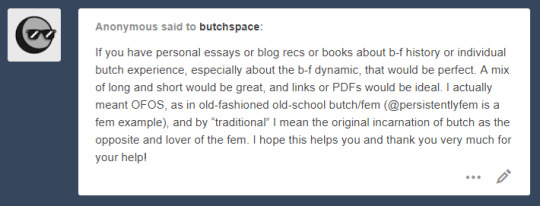#obviously i could rec more but these are like the main ones id rec only bc theyre different genres so at least One should appeal???
Explore tagged Tumblr posts
Note
Bestie tell me your kdrama recs !! I’ve only just started and I’ve seen law school and Vincenzo both of which I highly recommend if you haven’t seen them already bc slowburn romance is amazing✨
stop those are both kdramas that i started and couldnt finish the first episode lmaooooo i might give them another go tho
i definitely recommend crash landing on you (netflix) it was sooooo good like this woman accidentally ends up in north korea and is trying to make her way back to the south and this north korean soldier helps her it was amazing even my brother liked it!!
true beauty (watch on dramacool) is my fav its a romcom where this girl is ugly and puts on makeup to the point where shes unrecognisable and leads a double life its really good i prOmise its set in highschool and theres a love triangle where youll root for both guys bc theyre both <333 also the style is deff not naturalistic tho the main has a vivid imagination and is quite dramatic but its okay because its funny and every character in the show is hot and i love the way that it doesnt dwell on the fact that people will eventually discover that shes 'ugly' and instead gave every character well rounded storylines like this was one of the most cohesive and rich (in terms of plot) shows ive seen i love it a lot
if ur into historical dramas (its the only one ive seen ngl to u) u should watch rookie historian goo hae ryung (netflix) its set in like the 1800s or something and shes one of the first women to get a job at the palace where they record all the official meetings and stuff like they write the sources for historians in the future to use its quite 'political' bc it deals with the royal family but anywyas forbidden love between a prince thats been locked away by the king and a woman who is nothing but a mere historian??? sign me up
#obviously i could rec more but these are like the main ones id rec only bc theyre different genres so at least One should appeal???#idk bro#i really love these#you ask i supply
3 notes
·
View notes
Text
Queer novel recs
[A repost from my Patreon.]
By request of the one person who is pledging at a Patreon tier that lets them make meta/review requests of me, some recommendations for queer novels. Fiction-wise, I read pretty much exclusively science fiction and fantasy, with the occasional excursus into historical fiction, so that's what you're getting.
SF/F these days is, happily, getting queerer and queerer. As a general recommendation, a good place to start is the lists of winners and nominees of the Otherwise Award (formerly the Tiptree Award), which, according to their website, "encourages the exploration and expansion of gender." There's also the Lambda Literary Awards, which are awarded to both fiction and non-fiction LGBT books across various categories, including genre (mystery, romance, SF/F & horror). It's obviously not going to be a guarantee that you'll like any particular one of these books, but at least it means that somebody did.
A whole lot of the Hugo award nominees and winners this year coincidentally happened to be queer fiction, especially in the longer categories. The Best Novel winner, Arkady Martine's The Memory of Empire, is a sprawling space opera starring a diplomat who incidentally (very incidentally) happens to have some Feelings for her cultural liaison, and it's a really good book, anyway. I actually voted for Tamsyn Muir's Gideon the Ninth, which is billed as "lesbian necromancers in space," and it is pretty much exactly that. It's a murder mystery, which you'd think would be less mysterious in a book where half the characters are necromancers, but this doesn't actually help them much. I thought it was delightful and I have the sequel sitting here on my Kindle waiting for me to read it. But had Gideon not stolen my heart, I would have voted for Kameron Hurley's The Light Brigade. Everything else I have read by Hurley -- well, okay, that's just the Bel-Dame Apocrypha series, actually -- has starred kickass queer people, and this one's no exception. It's military SF in the vein of Starship Troopers or The Forever War with a really well-done time travel plot, in which the twists just keep coming. The narrator's gender is intentionally obscured for about 95% of the novel, and for added fun, they're bisexual. (Charlie Jane Anders' The City in the Middle of the Night also had queer characters but it didn't really grab me.)
(I have to admit I bounced off a lot of the Hugo novella nominees this year, including most of the queer ones, but Amal El-Mohtar & Max Gladstone's This Is How You Lose The Time War (lesbian time-travel agents) did win, although it wasn't really my thing, and Rivers Solomon's The Deep (lesbian mermaids) appears to have gone on to win this year's Lambda instead, although that one wasn't really my thing either. Becky Chambers's To Be Taught, If Fortunate also had some lesbians and I liked that a bit better, but none of those got my #1 vote.)
I have not read it yet and cannot vouch for it but my wife is reading N. K. Jemisin's new short story collection and she says they're very good and a lot of them are queer.
Okay. So. What about less recent queer SF/F, you ask?
I started reading SF/F in the mid-90s, and there wasn't a whole lot of queer SF/F out there in the mainstream SF market, so I imprinted pretty heavily on what there was that I could find, which was basically, at first, the blink-and-you'll-miss-it gay dragonriders of Anne McCaffrey's Pern series. Pern is what The Youth these days would probably call problematic in several ways, but there wasn't much else out there. I also then read Mercedes Lackey's Valdemar series, which is basically iddy iddy whump fic with magic telepathic animals who love you, so I'm not saying it's a complete literary masterpiece but Confused Baby Lesbian Sineala sure spent a lot of time wondering why she was identifying so very hard with Vanyel from the Last Herald-Mage trilogy. (I also really enjoyed Marion Zimmer Bradley's Darkover books, especially the ones about the Renunciates (the lesbian ones), Heritage of Hastur (the gay one), and The Forbidden Tower (the one where a telepathic orgy solves everyone's problems) but owing to the, uh, terrible things we all found out about MZB after she died, I don't think I can recommend them. Or read them ever again.
Other older queer SF/F that was beloved among my friend group: Ellen Kushner's Swordspoint and its sequels are about a duelist and his boyfriend and a lot of people liked this one, but I never liked it enough to keep up with all the sequels. The first few of Lynn Flewelling's Nightrunner books, however, punched me straight in the id; the protagonists are a pair of spies and thieves who are, more or less, this fantasy world's version of elves. There are a whole lot of grätúìtôūs dīåcrìtïcs and after the third book everything gets a little too horrific for me, but I really loved the first three.
But if I had to pick a top three list of authors who have written queer SF/F, this would be my list:
(1) Diane Duane. She is pretty much my favorite author ever, so I am biased here. I first discovered her work with her Star Trek tie-in novels (which, if you like Vulcans and Romulans, are amazing) and then her YA series Young Wizards, which is about teenagers who can do magic and use it to make the universe a better place and it's about ten thousand times more meaningful to me than Harry Potter ever was. But, anyway. She also has a fantasy series called The Tale of the Five, which is an everyone-is-bi-and-poly series started back before that kind of thing was even cool. Also there's a group marriage involving, like, six people, one of whom is a fire elemental. There are three books out in that series, she's still writing novellas set in it, and she swears that she's going to write the fourth and final book that we've been waiting about 25 years for.
(2) Melissa Scott. Everything I have ever read by Melissa Scott, either as a solo author or with her late partner Lisa Barnett, is queer as hell and has amazing worldbuilding. I first encountered her work when I randomly picked up Trouble and Her Friends (lesbian cyberpunk) at a used bookstore and ended up adoring it. Her other works include Shadow Man (set in a future where humanity has a whole lot more intersex people), The Kindly Ones (which has a protagonist whose gender is never specified), and The Armor of Light (alt-history involving Kit Marlowe and a demon). But my favorite series of hers is the Astreiant series, which is a Professionals AU with the serial numbers filed off, but they're filed off really well. It's a series of police procedural mysteries set in Fantasy Matriarchal Renaissance Netherlands, starring a m/m couple, and the fantasy gimmick here is that astrology is really real and really works. They're a lot of fun.
(3) Nicola Griffith. All of her books are about queer women. She has a few that are modern-day thrillers that I didn't so much care for, but I really love her SF. The first book of hers I read was Ammonite, about an anthropologist who gets sent to a planet of only women to try to figure out how they reproduce and ends up going native instead. I really adored it. I also remember really liking Slow River although I no longer remember the actual plot, except that the main character worked at a sewage facility. And it's historical fiction rather than SF, but she's probably most famous for Hild, a novel about Hilda of Whitby. I liked it a lot except for the part where it annoyed me that Griffith invented out of whole cloth the idea that women would have a special female companion and made up a name for it in Old English and everything, and most people who read the book probably believed it was a real thing. But, uh. I did really love Ammonite. I am so weak for planet-of-women books. (This is why I am so sad that I can't ever read the Renunciates of Darkover books again.)
That's about all I can think of right now. I hope some of those recs are, at the very least, new!
31 notes
·
View notes
Photo

Epochal Territories Shoot (B-Roll) - 19/12/2020
During the main shooting for Epochal Territories, I shot some what I would call B-Roll photographs along side the main work. Mainly, this was because I found myself with a Hasselblad XPan II which was kindly given to me by one of the kind Tech Dems in the ERC, on one condition: It was broken. The XPan is a unique 35mm rangefinder because it doesn’t just shoot the normal 3:2, 36x24mm sized photograph we’re used to, but it can also shoot a 2:1, 65x24mm panoramic frame. This is great, when the way to access that works. The XPan is paired with the 45mm F4 and in this shoot, I used Ilford HP5+ which I developed in stock ID-11 for 7.5 minutes and scanned with my Canoscan 9000F MKii at 2400DPi. The film was metered and developed at 400 asa, with the lens stopped down to F8-F11 and kept in aperture priority for convenience whilst I made sure the format dial didn’t move...

Above is the dial to switch it from normal to panoramic. I knew about this, as the Tech Dem told me that it either didn’t work or was extremely fickle. As you can see, it is missing a great deal of it’s casing and only worked if it was in a specific position, and if not, a flashing P would appear on the frame display instead of a solid P. But, despite it being broken, I managed to get it to work for the most part by turning it whilst wearing gloves...because it was cold. The XPan was with me for a couple of laps around Colerne on a bitterly cold December afternoon.
*The above contact sheet is in reverse order because how the XPan is loaded, as it winds out the entire roll first before shooting, just so when the roll is finished, it is already in the canister.*

The letterbox style of the XPan’s panoramic mode is incredibly cinematic, and works rather well with - obviously - straight horizontal lines. What I wanted from this ‘shoot’ was something different from the normal photographs taken on the Mamiya 7ii. During the time, I wasn’t really sure why I was shooting Ilford HP5+ through an XPan when all of this project was shot with the aforementioned. But, now I realise it can be used as B-Roll for the up-and-coming book for Epochal Territories, which is in the very early stages of development. I envisage these or similar images being used as background for text or other artworks. I am thinking in terms of using these images with similar text to what I have been writing on my shoots, but a longer and potentially less coherent sporadic amount of words and thoughts, almost capturing the catatonic nature of the zeitgeist.

The amount of space you can fill in the frame is amazing. What you are getting - technically - is a medium format 35mm camera, as it is larger than full frame. With this, you get the benefit of the 135 format’s portability but the photograph real estate of 120, all packaged in a lovely metallic camera manufactured by Fujifilm, made under license by Hasselblad.


I feel that these images would suit being used as ephemera within the book, mixed together with text or altered themselves just like my previous work for PHOT103 (above). I would like to return to this work, with the possibility that it could make an appearance within this body of work. I found the way of erasing the clutter instead of deleting creates panic and a sense of unease, which is what my work is about. There could be a way where I utilised these photographs (or take others) and combine that style as well as text. Perhaps the text doesn’t need to be discernible?

Even the standard 3:2 photographs from the XPan are great. This was actually an accident as the P wasn’t working so I had to take it normally, but I think I prefer it that was due to the mass of vertical lines.



I mostly enjoyed this part of Colerne by The Rec because of these barricades, closing off parts of the pavement and houses. It felt odd walking around and having to conform to these barricades because work was happening despite nobody actually being there.


Despite these coming from a different camera setup, I still get the same feelings of unease and malaise that I get with the images from the M7ii. Perhaps it is the desolate nature of the village or the depersonalised landscapes. I also feel that the panoramic nature of the photographs lends itself to this feeling because it is not a natural way for us to ingest an image. We are used to having a certain set of aspect ratios, with this one relating more to cinema than anything. They could be stills from foley video recordings, with just the ambient noise of wind, distant cars or conversations coming from behind hedgerows.
A coda. I plan on working with the images and incorporating them into the book in one way or another. I shall try to create various artworks with them and see if they work together, whilst keeping to the monochromatic theme of the project. I plan on the book having no colour either, with monochromatic covers and text, furthering the feeling of bleakness and seeing the world in a different light. This will need to be worked upon in the coming weeks as well as planning the pace and style of the book. I still have a lot of locations I would like to visit, which certainly depends on how the lockdown works out in time.
1 note
·
View note
Text
Star Trek Episode 1.4: The Naked Time
AKA: Everyone Has A Real Bad Day Except For Sulu
CONTENT WARNING: This episode contains an onscreen suicide in which a man stabs himself in the stomach and dies later in surgery. No blood or gore or details of the surgery are seen. This recap covers the first scene but does not contain any images of it. There is one screencap of the surgery scene, which does not show the body, and is only there to point out a particularly ridiculous prop.
Here's a story about The Naked Time for you: one year when I was in college I had a Star Trek wall calendar. Each month had a picture from an episode on the top half, with the name of the episode underneath it, and then some trivia about it on the bottom half. The picture for February was shirtless Sulu posing on the bridge, naturally captioned The Naked Time. So one day a friend of mine who didn't watch Star Trek was over hanging out when she saw my calendar, and I wound up having to explain to her that yes, that was an actual Star Trek episode, no it was not a porn parody of Star Trek, yes it was really called The Naked Time, no, no one actually got naked in it. Which was quite the conversation. You try explaining shirtless Sulu with that caption completely out of context.
February was a good month that year.
Our episode begins with the Enterprise orbiting a planet called Psi 2000, because 2000 is the coolest number (except for 3000). Psi 2000 is an old planet, now little more than an arctic wasteland, which is near the end of its life. So near, in fact, that it's about to fall apart completely, and the Enterprise is there to watch (for science). Before they do that, though, they've got to pick up a research team that's been stationed down on the planet surface.
But all is not well, for we soon see that the inside of the research lab is just as much of an arctic wasteland as the outside, complete with a dead person sprawled over a console. Spock and some dude beam down wearing snazzy orange bubble wrap suits and Spock examines the stiff with his Pringles can gun.

[ID: Spock and another man wearing textured orange hazmat suits, faces only barely visible, standing in a room covered with dubiously realistic snow and ice. A body is slumped over the table in front of them, also covered in snow. Spock is pointing a cylindrical device at it.]
The two of them split up, the dude to check out the life support systems and Spock to examine the horrible scene of a shop window mannequin half-buried in snow. His Pringles can tells him that she's been strangled. The dude comes back and reports that all life support systems are off and there are four more dead people, including the engineer frozen apathetically at his post and another man taking a shower fully-clothed. Well, maybe his clothes were dirty too.
As Spock goes to check out this spectacle for himself, the dude wanders back into the main room and gets out a device of some sort that makes whirring sounds. But then his face itches, so, like the competent Starfleet officer he is, he carries on and ignores this. Ha ha, no, I'm just kidding. He takes his glove off, puts it on the dead guy's head, then sticks his bare hand up his helmet to scratch himself. As if that wasn't bad enough, he then leaves the glove off while he messes around on the floor. When he puts his hand on the side of the desk, we see an ominous red spot in the ice. To give the guy the very little credit he deserves, he doesn't put his hand directly on the red spot, but this doesn't matter much because some of the liquid crawls upward and splatters onto his hand anyway. And he obviously notices this, because he shakes his hand, sticks it back into his helmet to sniff it, then puts his glove back on like nothing happened.
Immediately afterward, Spock comes back and tells him to be certain they expose themselves to nothing. Well, have I got some bad news for you.
Spock calls up to the Enterprise to tell them what's going on, and when Kirk asks what caused all this, Spock says it's like nothing they've dealt with before. The drama of this is a bit undermined by two things: one, everything they deal with is like nothing they've dealt with before, and two, Spock says this in a complete and utter deadpan, even by Spock standards.
After the titles, Kirk recaps what just happened, and says that despite it all they're still going to hang out and watch the planet implode because hey, why waste a trip. Spock and the dude—whose name is now revealed as Tormolen—beam aboard and Scotty decontaminates them by making the transporter lights flash on and off for a few seconds. Then they go over to Sickbay to get checked out just to be double sure. This consists of a brief examination which I don't think is going to be much good for revealing any contaminants they might have picked up, but at least we get to see the cool Sickbay examining tables that flip up and down.
Here's an interesting point: in this scene both Spock and Tormolen are wearing black t-shirts instead of their usual colored tunics. We saw this earlier with McCoy wearing the same kind of shirt when he was chilling back in The Man Trap, and he also seems to be wearing one under his short-sleeved blue shirt, which suggests that it's a standard uniform undershirt (especially since Spock and Tormolen put their blue shirts back on over them after they get done with the examination). So...where the hell is Kirk's? Because we're going to see Kirk with his shirt ripped or off many, many, many....many, many times throughout this series, and he's never wearing anything under it. So what gives? Are these not part of the uniform and these three random people just enjoy wearing them? Are they part of the uniform for everyone but goldshirts? Is Kirk exercising some kind of captain's privilege to not have to wear an undershirt? I don't know, man. Star Trek uniforms have never made any sense to me. Also, I’m sorry I introduced that as interesting. I don’t know why I did that.
Anyway, Spock and McCoy snark at each other a bit, but on a less cheerful note we see that Tormolen is rubbing his forearm anxiously. Which presumably means more in this context than it does when I do that about thirty times a day. Kirk comes in to see what's up, and Tormolen mournfully describes how terrible the scene was. That leads to this bit of dialogue from him and Kirk: “I keep wondering--” “You keep wondering if man was meant to be out here. You keep wondering, you keep signing on.” So either Kirk is a mind reader, or this sentiment is old ground for Tormolen.
Spock says he has no idea what happened down there, but maybe they could find something on the record tapes. Kirk tells Tormolen to go get some rest since he keeps going on about how many dead people there were down there, and he and Spock go off to check those tapes. We see Chapel (yay!) and Tormolen looking at his hand while a sinister rattling sound plays (not yay).
In the briefing room, everyone's looking over the tapes. Spock identifies one as a spectro-analysis tape, but it turns out to just be a slow pan of the room where they beamed down. I would say that's not what spectro-analysis is, but spectro-analysis (as opposed to spectral analysis) isn't a thing, so I guess you can have it mean whatever you want. Kirk muses over how bizarre and macabre this situation is, with everyone just frozen and uncaring, and asks for theories. McCoy says it couldn't be drugs or intoxication since the bio-analysis tapes, which were apparently more useful than the spectro-analysis tapes, rule that out. Spock suggests it may be some new form of space madness, which is like regular madness but in space, but he doesn't know what could have caused it since they didn't pick up anything unusual on their sensors. Scotty points out that that just means they didn't pick up anything unusual that they were designed to pick up, so this could still be something entirely new.
Kirk's main concern is this: they have to get the best readings they can of Psi 2000's breakup, and to do that means maintaining a really precise orbit, so they need absolute efficiency and no one getting space madness and randomly dying. He asks if there's any chance that what happened to the science team could affect the crew of the Enterprise. There's a conspicuous lack of any answer to this, which annoys Kirk, but hey, if they don't know what happened, how can they know what effects it's going to have? Anyway, the bridge calls in to report that the expected erratic changes are beginning to happen to the planet, and the meeting ends on that note.
In the rec room, or whatever, some people are playing space checkers (like regular checkers, but in space) and Tormolen is getting some food. He's still staring at his hand and rubbing it against his shirt like there's something on there he can't scrub off. Which I guess there is.
Sulu and friend come in to get some coffee, chatting about Sulu's latest passion: fencing. His friend complains that Sulu has a habit of picking up intense interests every week or so, which I guess is kind of thrown in there as a justification for why Sulu was in the botany lab a couple weeks ago but never shows up there again. The two of them sit down next to Tormolen and Sulu, noticing his buddy's new compulsion, asks if everything is alright, causing Tormolen to snap at him violently.
The two goldshirts get called to the bridge, but Sulu makes one last effort to check on Tormolen before they go. This really sets Tormolen off, making him jump up, knock his chair over, and go on an impassioned rant about how mankind doesn't belong in space. When his friends try to calm him down, he grabs the knife from his plate and points it first at them, then at himself. They get into a tussle, trying to take the knife from Tormolen, while everyone else in the room watches dispassionately. Thanks, guys.
Sulu and his pal aren't successful getting the knife away and all three of them take a tumble to the floor, and as they get up it's revealed that Tormolen stabbed himself in the stomach. I'm...not sure how he managed to do that with a butter knife. Sulu's friend runs over to the intercom and yells that they need medics. Then we hear another sinister rattle and he starts rubbing at his hands like Tormolen did.
After the break, Kirk gives a log saying that unbeknownst to them, a new disease has been brought on board. But this one's not in the past tense, so it just kind of makes it sound like Kirk has precognition. On the bridge, Sulu and his friend—who we finally learn is called Riley—are keeping the Enterprise steady around the rapidly condensing planet. Spock waxes on a bit about how they may be seeing Earth's own future, since before its sun went dark Psi 2000 was very similar to Earth. I dunno what we're going to do with that information, but hey, science!
Everything seems to be going alright so far, except that both Sulu and Riley have caught that bad case of Out, Damn Spot that's been going around, complete with sinister rattling. Kirk can't hear the soundtrack, though, so he doesn't notice anything off. He goes over to talk to Spock about the strange case of Tormolen. Spock thinks Tormolen was too confused to be actively trying to kill himself, but he notes that the man's capacity for self-doubt has always been high and wonders what caused it to suddenly come to the surface like that.
In Sickbay, Chapel and McCoy are operating on Tormolen, but it's not going well, even when McCoy blowtorches Tormolen's wound shut.

[Image description: McCoy and Chapel, dressed in blue Sickbay scrubs, doing surgery on a draped body at a Sickbay table. McCoy is saying, “Closing,” while pointing a device at the patient. The device looks remarkably like a completely undisguised blowtorch. ]
We briefly cut away to the bridge, where there's been a sudden increase in gravity that causes the orbit to go all wonky. Riley's too busy looking at his hands to do his job, causing Kirk to have to do it while Riley sits there and sweats heavily. Back in Sickbay, Tormolen's vitals are inexplicably dropping, and despite McCoy and Chapel's best efforts, he dies. This really freaks McCoy out because Tormolen's wounds shouldn't have been fatal. He calls Kirk to Sickbay, and after taking a moment for a bit of exposition, Kirk heads down.
Sulu and Riley talk about how much they're both sweating, then Sulu abruptly suggests they head down to the gym for a bit of a workout to calm their nerves. Riley is understandably perplexed about this, but that doesn't stop Sulu from sneaking off the bridge unnoticed (somehow), leaving poor Riley with no idea what to do about it.
In Sickbay, McCoy is explaining to Kirk that Tormolen's wounds were not severe enough to kill him, and says that the only reason he died was because he didn't want to live. Um. I don't think you can will yourself to death. Especially not while you're unconscious. But McCoy can't come up with anything else, and he's especially baffled because he says that men like Tormolen don't give up. They can't be trusted to investigate inexplicable deaths without contaminating themselves and they're incredibly susceptible to ennui, but they don't give up.
Kirk wonders if this is a coincidence, with Tormolen dying after having been down on the planet where all those other people died. McCoy can't see how, since they checked everything they could and did everything that was possible. Kirk tells him to check the impossible too. What the hell does that mean? “Check if he was a vampire! See if he died from Kryptonite poisoning! Try sprinkling fairy dust on him!”
On the bridge, the orbit goes out of whack, causing Spock to finally notice that one of the helmsmen is mysteriously absent. He runs over and sets things straight, recruiting a guy called Rand (no relation) to take Sulu's place and demanding to know why Sulu isn't there. Riley is...not very helpful.

[Image description: Riley, a white goldshirt with brown hair and a very drunk look on his face, sitting at the helm on the bridge and proclaiming, “Have no fear, Riley's here!”]
Spock relieves Riley, replacing him with Uhura. That's right, Uhura can run communications and fly the ship. Uhura can do anything.
Spock sends Riley to Sickbay, and Riley goes happily enough, sauntering off through the corridors and opening the Sickbay doors by blowing on them. He goes in and pesters Chapel, first mournfully asking her what happened to Tormolen, then, without skipping a beat, starts hitting on her, causing more sinister rattling when he touches her chin. Then he says that Tormolen's mistake was that he wasn't born an Irishman. Because as we all know, Irish people are immortal. Then he leaves. Well, to be fair, Spock just said to report to Sickbay, he didn't say anything about what to do when Riley got there.
Riley's pretty quickly overshadowed though, because immediately afterwards we see Sulu burst through a door, shirtless, laughing, waving a rapier, and having the time of his life.

[ID: Sulu, wearing only his uniform pants and boots, standing in the middle of an Enterprise corridor, grinning and striking a duelist’s pose with a rapier. The subtitle reads [Music]. ]
Legend has it that the original script was undecided about whether Sulu was using a rapier or a samurai sword, and that the choice was up to Takei, who went with the rapier because he felt that the samurai sword was much too stereotypical for a Japanese character, something he really wanted to break away from because in the 60s it was really goddamn hard for an Asian actor to get any role that wasn't a pile of stereotypes. Legend—and by legend, I mean, George Takei—also has it that Takei spent the time up until the shoot frantically doing push-ups in his dressing room to prepare for his shirtless scenes. He really enjoyed this episode, and boy howdy can you tell by watching him.
Sulu encounters a couple of crewmen walking the other way, who have an astounding lack of reaction to being spontaneously menaced by a really sweaty guy with a sword. At least, up until he charges them, at which point they turn tail and run away. Sulu only finds greater amusement in this, calling them cowards as he climbs up a nearby ladder.
Meanwhile, Spock gets a guy to relieve Uhura, and Kirk comes on the bridge to discuss the strange case of the missing helmsmen. He tells Uhura to send a security team out to locate and confine the two of them, and Uhura responds with a report about Sulu's antics.
Spock proposes a pattern of hidden personality traits suddenly surfacing: Tormolen's self-doubt, Sulu's desire to be a swashbuckler, and Riley...being really proud of being Irish. I guess that's a personality trait.
Before they can go any farther with this theory, there's another disturbance from the planet, only this time the helmsmen can't compensate because their controls aren't working. Kirk decides enough's enough and orders them to warp out of there, but the warp drive also isn't responding. Neither are the impulse engines.
Kirk heads off to see what's up with this, but he's interrupted by Sulu bursting in on the bridge, waving his sword around wildly, and I don't think Shatner's expression as the rapier gets shoved in his face had much to do with acting. Uhura tries to get the sword away, but Sulu grabs her to his side, declaring, “I'll protect you, fair maiden!” To which she responds, “Sorry, neither.” Wow. Censors were asleep that day, huh.
A triple attack by Kirk, Spock and Uhura gets Sulu a Vulcan nerve pinch for his trouble, and Spock has him hauled off to Sickbay, with a surprisingly snarky comment from Spock about “D'Artagnan here.” Kirk goes back to trying to raise Scotty about that engine trouble...but it's not Scotty that replies. It's Riley. He says that he's relieved Scotty of his duties and also that he's the captain now. Apparently they can't shut him off, either, because he goes on to demand double portions of ice cream for dinner and then starts singing “I'll Take You Home Again, Kathleen.” Kirk's face says it all.

[ID: Kirk, standing on the bridge next to the lift doors with one hand to his forehead, looking extremely frustrated, while Riley sings, “I’ll take you home again Kathleen...” over the intercom.]
Kirk's having a really bad day.
With nineteen minutes to go before they swandive into the collapsing planet, Kirk finally reaches Engineering, where Scotty is doing his best to get in. He says that Riley told everyone that Kirk wanted them on the bridge, then locked the door behind them. Wow. It is really easy to take over Engineering. Not only that, but Riley's hooked everything up to the main panel in Engineering, so they can't use auxiliary control. The only way they can get back into Engineering is to literally burn a hole through the wall, which is going to be tricky because the wall is full of stuff that you really don't want to burn through.
Riley's still singing, and I would comment on the quality of his singing, but that would be very hypocritical of me, so I won't. Besides, everyone else in the episode will do it for me. Uhura reports to Spock that various incidents among the crew are increasing, either because of the sickness or because they're all just worried they're gonna die, so Spock orders her to have the main sections sealed off so they can hopefully slow down the spread of this thing. But Uhura's alert is cut off by Riley, who's also overridden the alert channels. You can do anything from Engineering. Riley tells Uhura that she won't get ice cream since she interrupted his song. Awwww. He also says there will be a dance in the bowling alley later. Hang on, they have a bowling alley? Of all the things you could have installed for entertainment on your starship, you picked a bowling alley? No wonder they're so desperate for shore leave all the time.
Uhura says she can't do anything to cut Riley off, so Spock goes over and presses a bunch of buttons to confirm this. I've noticed a running theme in this show is that no one believes Uhura when she says she can't do something or something's not working. Then again, that happens to Scotty a lot too.
Just then, there's a big jolt, and everyone dutifully flings themselves across the set. My favorite part of this is the brief cutaway to Sickbay where we see McCoy doing a belly flop across Sulu's legs.

[ID: Sickbay tilting to the side, causing Chapel to fall backward onto a bed and McCoy to wind up horizontal on top of a passed-out Sulu.]
He calls up to the bridge to complain about this (apparently Riley didn't bother cutting that particular channel) and says that they're running tests on Sulu but haven't found anything yet. Kirk asks if there's anything he can do about Riley, but McCoy's got nuthin. Not even some tranquilizer gas to pump in there or anything. You're falling down on the job, there, Bones. Literally and metaphorically.
Riley calls in again to give the female crewmembers orders on how to look (thanks dude), including telling them not to wear too much makeup. You don't want too much makeup on this ship, Riley, you better take that up with Mr. Spock and his eyeshadow.
Then he starts singing “I'll Take You Home Again, Kathleen” one more time. Which I guess is the only song he knows. You couldn't mix it up a bit there, Riley? Rocky Road To Dublin? Galway Bay? Thousands Are Sailing? No?
Scotty does something that gives the bridge enough power to keep the ship stabilized, but that's not that much help since their orbit is still decaying and they're now sixteen minutes away from faceplanting into the planet (faceplaneting). Kirk takes a moment to sign a PADD for a crewman. Kirk. Kirk, the ship is crashing. You can do paperwork later. He sends Spock down to help McCoy, but tells him to stop on the way to harangue Scotty to go faster.
On his way, Spock encounters a maniacally laughing man who's painted 'love mankind' on the wall, and a goldshirt harassing Rand, because harassing Rand is the main pastime on the Enterprise. Spock tells him to stop that, and he does...until Spock leaves, whereupon he immediately starts again. Helpful.
Spock finds Scotty, who says he's doing the best he can, dammit, and he can't cut through the bulkhead safely any faster, but Spock tells him they don't have time to be safe. This clearly perturbs Scotty deep in his engineer's soul. Not much anyone can do about it now, though.
In Sickbay, McCoy is yelling at the biopsy lab, but they're not responding, so he goes over to yell at them in person. Chapel is left behind with Sulu, who's coming out of the tranquilizer (we can tell because he's thrashing his head around and grunting). Unfortunately Chapel has the contagion from where Riley touched her, and she wanders off.
Things aren't going well on the bridge. Riley is still singing, various people are having to be shoved out of their chairs as they succumb to the contagion, and Kirk is about to lose it. He snaps at Uhura to cut Riley off, and she snaps back at him that she sure as hell would if she could. Kirk has the good grace to apologize, but it's understandable; I think anyone would lose it after that many renditions of “I'll Take You Home Again, Kathleen.”
Spock finally makes it to Sickbay, where he encounters Chapel, who starts rubbing his hand and talking about how the men from Vulcan treat their women. Keep in mind that's the Vulcan equivalent of passionately making out, so Spock is understandably pretty perturbed by this, especially when she starts saying she loves him. Spock finally manages to disentangle himself, but it's too late: he's been infected too. He wanders out into the corridor, ignoring Uhura's attempts to get a hold of him, and starts sniffling, which is the Spock equivalent of attacking people with a sword.
Kirk stomps down to Engineering with some security guys in tow, where Scotty is finishing up cutting a Tetris block-shaped piece out of the wall. He reaches his hand right in the still-smoking hole (badass) and opens the door, letting Kirk and the redshirts rush in and apprehend Riley. Riley's a graceful loser, though; he just says, “No dance tonight,” and gets thrown into the redshirts while Kirk and Scotty desperately start pushing buttons.
Meanwhile, Spock finds an empty room to duck into, and tries desperately to get control of himself, collapsing into a chair and muttering some math as he breaks into sobs. This is an interesting scene, because it wasn't originally in the script; Spock was supposed to have a much more light-hearted encounter where he burst into tears after getting a mustache drawn on him by the mad graffiti artist. Nimoy objected, feeling that this was out of character for Spock and missing a great opportunity, so he pushed for the scene to be changed. He had to keep pushing, because the scriptwriter didn't initially want to do it, and then it came in at the end of the shooting day and no one thought they could get it done in time, but Nimoy persevered and did the whole thing in one take right under the wire.
The result is something special: a rare scene showing Spock in a moment of true, open vulnerability, confessing to the feelings he insists he doesn't have, the struggle to keep himself restrained and logical to the point that he can't confess feelings like love and friendship even to himself. It also stands out from the rest of the episode, as aside from Tormolen—whose arc, while tragic, is rather flat--most of the results of the affliction are much more Wacky Hijinks than anything seriously emotional.
There's bad news in Engineering: Scotty's found out that Riley turned the engines off completely, and it would take thirty minutes to start them up again. This is bad, since they're now starting to burn up in the planet's atmosphere and have got about eight minutes left...leading to one of Scotty's most famous lines: “I cannot change the laws of physics. I got to have thirty minutes!”
Well, Kirk isn't going to take the immutable laws of physics as an excuse. He suggests a controlled implosion of the engines, but Scotty says that's only a theory and has never been done. They'd need a row of computers working weeks to find the right formula. Speaking of which, where is Spock?
In Sickbay, Sulu has finally come round, which for some reason involves screaming at the top of his lungs while McCoy watches dispassionately.

[ID: Sulu sitting up in Sickbay and screaming, while McCoy watches him with a hypospray in his hand.]
When he's done screaming, Sulu seems back to normal and apparently doesn't remember anything since he left the bridge. That's enough for McCoy, who shoves Chapel out of her chair (there's a lot of shoving people out of their chairs in this episode) and calls the lab to tell them they've finally isolated the problem. He says that somehow on Psi 2000 water has changed to a complex chain of molecules (it what now) that's passed through perspiration and acts like alcohol once it's in the bloodstream. Except it doesn't cause anyone to lose coordination, or slur their speech, or throw up, or pass out, or have difficulty thinking, or have any effect aside from soul-baring and a lot of sweating. So...maybe not a whole lot like alcohol. McCoy tries to tell all this to the lab, but they just laugh hysterically at him, so he goes off to do it himself.
Kirk finds Spock (...somehow) and demands to know why he's crying in a side room while the ship is crashing. Spock starts talking about his mother and how he could never tell her he loved her. It's very moving, but we've only got five minutes before no one on the ship is going to be telling anyone anything ever again, so Kirk's got no time to listen. Not even when Spock says that he feels ashamed when he feels friendship for Kirk, a touching admission which is somewhat undercut by the fact that Kirk is currently expressing that friendship by smacking Spock repeatedly across the face.
Eventually Spock gets tired of this and backhands Kirk in return, sending him tumbling over the nearby table with such force I'm surprised Spock didn't break his jaw in the process. Kirk starts ranting about the about implosion process and then smacks the nearby console when Uhura tries to contact him, from which he intuits that he's got the infection. Then he starts going on about how the Enterprise consumes everything in his life and he can't have normal relationships. Now, when Tormolen, Sulu and Riley were affected it took considerable time for substantial behavior changes to occur, but Kirk has to one-up everyone so he managed it in about five seconds. Meanwhile, Spock calms down and starts talking about the intermix formula, because...I guess he just got over this by himself. Also, I'm pretty sure five minutes have passed by now.
Scotty comes in to try and get something useful out of somebody, and he and Spock go off to work on the intermix formula, leaving Kirk to angstily make his way up to the bridge. As he steps out of the turbolift, McCoy is waiting to give him the antidote, which he does by ripping Kirk's sleeve open. Even though hyposprays can go through clothing. And Kirk's exposed neck is right there. And a gentle tug at the fabric would have been more than sufficient. Look, McCoy's had a long day, alright, he needs to take it out on somebody.

[ID: Kirk standing in front of the bridge lift doors looking tired and annoyed while McCoy injects a hypospray into the bare skin on his arm exposed by Kirk’s uniform shirt sleeve being ripped open almost down to the elbow.]
While we're at it, the question must be asked: how did McCoy manage to not get infected this whole time? He was in ample contact with lots of people who were infected, while wearing a short-sleeved shirt, and somehow never once had the slightest bit of skin-to-skin contact with any of them? The only thing I can come up with is that he was infected but it was impossible to tell any difference.
On the screen, the planet is rushing past closer and closer while everyone stares silently. In Engineering, Spock and Scotty are cutting even more corners to get the intermix to work in time. They do...something, and the lights go dim on the bridge while everyone reacts dramatically; Kirk goes full throttle by throwing his head back in a silent scream, while McCoy is content to rub his ear and squint a bit.
Then it's all over: the lights come back up and instead of a rapidly approaching planet on the viewscreen there's an open starfield. Spock comes up to say that they were successful, obviously, but with a bit of a hitch: they overloaded the engines and now they're traveling faster than possible. Not only that, but the ship chronometer is now running backward. They're going backward in time! Why is this happening? Who knows. Maybe they just went so fast they came back around again the other way.
They hit the brakes, but not before traveling three days back in time. Well, could've been worse. Spock points out that this is all very intriguing, having, you know, access to time travel now, but Kirk isn't interested in repeating this experiment anytime soon. He tells Sulu to take them on to their next destination. Um. Are you sure it's a good idea to head to your next destination before you've technically departed your last one? You're gonna get some questions from Starfleet about why you're not on the mission you're supposed to be on.
Anyway, the episode ends there, leaving the whole time travel thing a bizarre non-sequitor that comes out of nowhere, adds nothing whatsoever to the episode, and is never mentioned again. This is because this episode was originally supposed to be a two-parter leading into Tomorrow Is Yesterday, which is a proper full-fledged time travel episode. For whatever reason that didn't happen, though, so we just have this weird little endcap that it's probably best not to think about too much.
TREK TROPE TALLY: Crew death count for this episode is one blueshirt (Tormolen), bringing us up to seventeen. We also have our first case of Space Diseases with the Emotions Virus, our first case of a Time Trek, albeit an extremely mild one with the Enterprise getting thrown back three days into the past, and our second case of Uniforms Unformed with Kirk’s tissue-paper sleeve being mercilessly destroyed by McCoy. Next time, we'll be looking at a tale of doppelganger woe in The Enemy Within.
#star trek#star trek TOS#star trek tos season one#1.4 The Naked Time#recap tag#star trek TOS recaps#1.4 The Naked Time recap
33 notes
·
View notes
Text
Top Ten Books Read In 2018
1) The Last Summer of the Death Warriors by Francisco X. Stork
I picked this up at a book fair, read the summary, and figured I'd surprise myself with this author I'd never heard of before. It's about the friendship between DQ, a guy with terminal cancer dealing with his complicated feelings for his estranged-but-conciliatory family, and Pancho, a guy who's biding his time until he can get revenge on the person who's killed one of his family members. I like that both boys are raw and real and people—Pancho obviously has messed up emotions, but DQ can be plenty bitter and angry too: he's not an Inspirational Cancer Patient stereotype.
2) The Sherwood Ring by Elizabeth Marie Pope
Girl moves into her uncle's old ancestral house sometime during the 18th century and gets immersed into the past lives and loves of the ghosts that thrived there during the days of the Revolutionary War, their paths often crossing each other's. I swear I have never seen more delightful ghost characters in my entire life.
3) The Unbound by V.E. Schwab
So by the time I'd picked this up, I was having mixed feelings about V.E. Schwab – on one hand, she'd always written worlds that engage me almost instantly with their creativity. On the other hand, I'd just recently been horribly disappointed by the ending to what's been her most popular series so far: I thought her final Shades of Magic book did a most spectacular job on dropping the balls on everything good about it. Up to reading it, I'd thought the author's hype was deserved. But after, well…
So when I picked this up, it was with much trepidation. I'd loved the previous book, The Archived: the big old house setting, the grim closed-off girl/sweet sunny boy dynamic the lonesome warrior setup, all were like catnip to my id. I didn't want it ruined by a bad sequel. Fortunately, this book took everything I loved about the book and turned it up to eleven. It upped the stakes, it intensified the relationships, and it also added a mental illness angle that I personally found very meaningful.
The author is still kiiinda on notice so I'm not sure I want a third book. If there is one, dear God, please be good. *crosses fingers*
4) Turtles All The Way Down by John Green
I remember thinking, as I was reading this: this is really, really working for me but will it work for someone neurotypical? 2018 was hell and I was just so desperate for the people in my life to get it, and so I kept hopping on trains of thought like this.
Anyway, this book was spot on in what goes on in the wirings of my anxious brain. Green's usual turns of phrase took an incredibly frenetic turn at times, which, I know, is exactly what it's like to have a mental illness. This is not a book about "this is what to do" it's about how it IS or how it can GET.
I'm still really grateful for that quote about the spiral – how it tightens, but also how it eternally widens. When I first saw the cover, I thought it was kind of blah; now I look at that spiral and see something different. I see the hope of creating a new 'normal'.
5) The Song of Achilles by Madeline Miller
This was so readable it surprised me. I thought I'd go slow on it because: war story where it's a foregone conclusion that it ends tragically for the leads? Yeah, I'm not in a rush to reach the end of that. But I blazed right through this book. There's something really addictive about Madeline Miller's storytelling and how she brings her characters together and follows their blossomings and downfalls through the years. And then, the course of the Iliad and the inevitable sadness for Achilles, Patroclus, and Briseis was more like the slow turning of the tide rather than getting hit with a tidal wave. Anyway, not only was it readable but I'm finding myself eager to re-read it.
6 ) The Hero and the Crown by Robin McKinley
Part of my Read Everything Robin McKinley Writes mission that began last year. I'd liked the sheer escapism and the desert setting in The Blue Sword, but that whole white savior thing kinda put me off from enjoying Harry and the book more fully than I would've liked.
It was not so for this book, thankfully! Who knew that reading about the nitty-gritty of slaying big scaly beasts could be so satisfying? That's classic Robin McKinley, as I'm learning – you love what the protag loves. And then I really dug how the dead dragon's ghost haunting Aerin acts as a metaphor for mental illness.
(As I continue to wrestle with my diagnosis, I continually appreciate all the depression/anxiety metaphors I encounter in media. Maybe one day I'll make a post about it) AND ALSO: a love triangle that's actually well done and that serves our heroine's identity and character rather than taking away from it? Yes. Yes, thank you.
7) A Certain Slant of Light by Laura Whitcomb
Yeah so, this book killed me. It's about two twenty-something ghosts with unfinished business who find themselves in the bodies of two teenagers whose souls appear to have completely vacated theirs. They find themselves falling for each other and trying to find out what happened to their 'hosts' and what went on in their past lives. They also find themselves battling to survive the hostile home lives that their 'hosts' left behind. It's all very beautiful and kind of twisted and also a love letter to words and probably my most unexpected book of the year. And I have NO idea to rec it to people. "Read this, it's kind of fucked up but gorgeous but also can get triggery so step warily?" Uh.
8) Deerskin by Robin McKinley
See warnings above. Oh God. But really, I totally respect Robin McKinley for going full-out faithful to how utterly fucked up fairy tales can be while still creating a survival story. I'm not just talking about Lissar surviving spoilers incestual rape and miscarriage (indeed, I'm not qualified to talk about it) but how hers is a story of healing: by surviving the elements, by nursing living things back into life, by building herself up into a legend without even knowing it.
9) Muse of Nightmares by Laini Taylor
Just an incredibly satisfying ending to a duology that at the same time echoes that quote from Michael Ende's The Neverending Story: "but that is another story and shall be told another time." I love when something ends with that sense of: "there are even more stories and adventures for our beloved characters out there than you can possibly fathom, and you are now free to make up them yourself."
10) Autoboyography by Christina Lauren
I was intrigued by the premise: a half-Jewish guy and a Mormon guy fall for each other over the course of a writing class. And upon starting it, I could tell straight (heh, straight) away that it was going to be a favorite. It's an unabashedly kilig romance about falling for the wonderfulness in each other,and both mains are fucking adorable, and made me want to give them both a ton of hugs. Oh, and this book further reinforced my belief that the key to first-person writing is having a good voice.
Another thing is, I basically never see YA books that deal with growing up in a religion and actually-loving it and having it be an inextricable part of your identity… and then having to deal with the darker, prejudiced sides that you really wish would be excised from it altogether especially if they are opposed to who you are. To deal with it sensitively and touchingly, not only in a YA book but in an m/m romance? Well done.
honorable mention!
-The Secret History by Donna Tartt
I was reading this on the bus on the way home to the province for Christmas and I could not stop laughing and I had no idea to explain to my very curious sister that it was because half the protagonists were high as a kite at the funeral of the friend that they all killed and one of them had just very noisily killed a bee in the church vestibule and it made the loudest sound on the planet and they're all gonna have to ~aesthetically grieve and pallbear now even though THEY killed their friend and w o w it's like Nuwanda from Dead Poets Society was cloned five times.
Sometimes "pretentious people murder someone and somehow it is hilarious" is just exactly my cup of tea.
and a couple of series binges!
Almost 10 years ago (god, what the hell), I had a "YA Paranormal Romances I Might Actually Like" list, and the two trilogies below were on it. There's something gratifying about finally crossing off books on your TBR that have been there for ages:
-The Shade Trilogy by Jeri Smith-Ready (Shade, Shift, Shine) This series came out on the tail of the Great YA Paranormal Romance boom and I really wish I'd picked it up then (I also really wish some of the covers it got weren't so damn off-putting. It's like Animorphs all over again) because it's such cut above so many of the books that were being churned out in those days.
The premise is: what if there was a global paranormal event that left the portion of the population born after a certain year with the ability to see ghosts? I really like that the author thought this out thoroughly – it's not just a oooh spooky ghosties gimmick. Everything is affected: the educational system, the police force, politics, technology, travel, you name it.
The heroine was smart and truth-seeking and had nuancedrelationships with lots of female characters (bff, mentor, aunt who raised her, mom who died… ), the Betty love interest was a total sweetheart who also didn't seem too good to be true and who was capable of making major teenage fuck-ups, and the Veronica love interest was a rock-and-roll ghost who had the post-life character arc that I sadly wish Maggie Stiefvater had given Noah Czerny. I kind of loved them all a lot and one of the reasons I wish I'd read these books as they came out was so I could've been un-jaded just a little bit about Those Pesky Love Triangles.
(Someday I…really ought to make an analysis about why I dislike love triangles in general and what exactly was up with the ones that DID work for me.)
-Wolves of Mercy Falls trilogy by Maggie Stiefvater
I read the whole series toward the year's end. It was precisely the cold-weather binge I was craving. I may have my quarrels with some of her writing decision, but really few people can do atmospheric, poetic writing the way Maggie Stiefvater does. The romances were a bit too YA for me in this one, but I ended up really sympathizing with every single POV character anyway. And I mean, cold and poetry and family and books and wolves-as-family*.
(*One day, I'll have the emotional armor to watch Wolf's Rain again. )
5 notes
·
View notes
Text
Butch-Fem History / Butch Identity Reccs

[Image description: an anonymous ask to butchspace that reads “If you have personal essays or blog recs or books about b-f history or individual butch experience, especially about the b-f dynamic, that would be perfect. A mix of long and short would be great, and links of PDFs would be ideal. I actually meant OFOS, as in old-fashioned old-school butch/fem (@persistentlyfem is a fem example), and by “traditional” I mean the original incarnation of butch as the opposite and lover of the fem. I hope this helps you and thank you very much for your help!” End ID.]
Okay so! I’ve got sucked into making this post and I’m just gonna go ahead and publish before I add even more on and forget to sleep again. Putting it under a cut because of length, if anyone wants a non-readmore version of the post just let me know.
Caveats:
I focused mainly on works I could provide links to; this means that what I’ve provided isn’t necessarily my first pick, but it’s still some good stuff so whatever. (See the Offline/Extended section for more reccs.)
A lot of the pdfs were transcribed in the course of a sleepless night so there’s bound to be typos; if you wanna tell me about them just message/ask @holzes to avoid clogging this inbox up.
Sadly, most of these works are dominated by white, cis, and able-bodied perspectives. This is especially something I want to remedy in the future in my additions.
It should go without saying, but: I don’t endorse every single opinion in these works or their authors (who for the most part I know little about), they don’t necessarily align with my own views and/or preferences, and I recognize that some of them have issues such as cissexist language and framing (see Content Warnings for more detail). Unfortunately when it comes to LGBT history, a lot of the most prominent texts are outdated or otherwise flawed in some areas and you just have to kind of trudge through it and read critically.
I included dates next to the works for a reason! Some (basically everything written in the early to mid 90s) emerged from a specific time in the lesbian community and obviously some of their statements only make sense in that context (mostly the lesbian feminist movement and its aftermath tbh). Just keep this in mind, it shouldn’t matter too much because those texts are history but just in case…
Just because I couldn’t find a work online doesn’t mean it doesn’t exist out there somewhere.
This is a deeply incomplete list. If you have suggested resources like these (preferably ones available online) including books, essays, articles, blogs, films, youtube videos, etc…. Let me know @holzes.
Content Warnings:
The Q slur (in just about every context), D slur, anecdotal homophobia, mentions of homophobic violence, outdated trans terminology, cissexism / cissexist language, discussion of sex (both academic and semi-explicit), cussing, frequent discussion of bars / probably a mention of alcohol once or twice. Sorry for not providing individual content warnings, this post is already bulky enough. If there’s something you’re rlly concerned about just mssg me @holzes and I’ll do my best to help you out.
And with all that out of the way…….. the actual post begins.
History
“Butch-Fem” by Teresa Theopano (2004)
An extremely succinct, balanced overview of butch-fem best suited for absolute beginners (aka, “what the hell is butch/fem” level). Also a good jumping-off point for anyone lacking historical context for butch-fem. Covers origin, application, and controversies. [Link]
“Lesbian Identities and the Politics of Butch-Femme” by Amy Goodloe (1993)
A rigorous essay that in many ways is a more detailed version of the above; packs a wide range of butch-fem history, controversy, and popular interpretation into a relatively short essay. A nice crash course with a killer annotated bibliography to build off of. [Link]
excerpt from Boots of Leather, Slippers of Gold: The History of a Lesbian Community by Elizabeth Lapovsky Kennedy & Madeline Davis (1993)
This excerpt from the introduction explicates the existence of working-class lesbian bar cultures in North America from the 1930s to the 1950s as well as the butch-fem dynamic that accompanied and shaped these cultures. The second section of this excerpt is perhaps best read as a companion piece to The Return of Butch and Femme (see below), especially as relates to Kennedy and Davis’s criticism of Faderman’s attitudes toward butch-fem. The entire book is well worth the read, but if you’re pressed for time, Chapters 5, 6, and 9 will be most relevant for your purposes. [Link to excerpt] [Link to full book]
“The Return of Butch and Femme: A Phenomenon in Lesbian Sexuality of the 1980s and 1990s” by Lillian Faderman (1992)
A thorough examination of how butch-fem became deeply “politically incorrect” through the lens of 1970s lesbian feminism, as well as its persistence throughout that decade and its restoration (and transformation) in the 1980s and 1990s. Perhaps Faderman’s most balanced examination of butch-fem (but don’t worry, she still throws around every anti-butch-fem critique and stereotype that she can justify including) and an informative history of how modern butches and femmes arose and if/how we differ from our predecessors. Read with section two of the above for best results. [Link]
Odd Girls and Twilight Lovers: A History of Lesbian Life in Twentieth-Century America by Lillian Faderman (1991)
Might as well, yeah? The book is a very interesting/enlightening semi-comprehensive history and a groundbreaking work in lesbian history literature. If you wanna cheat, Chapter 7 is the one that focuses primarily on butch-fem. [Link]
Personal Narratives
“Double Trouble” by Lesléa Newman (1995)
A brief personal reflection by a femme on her traditional femme-butch relationship. [Link]
Persistence: All Ways Butch and Femme eds. Ivan E. Coyote & Zena Sharman (2011)
An interesting collection of a broad variety of fem and butch perspectives. Essays range from emotional personal narratives to a mix of historical and personal analysis. I’ve provided links to a few that seem most relevant to your interest.
“Femme Butch Feminist” by Jewelle Gomez [Link]
“No Butches, No Femmes: The Mainstreaming of Queer Sexuality” by Victoria A. Brownworth [Link]
“What We Know to Be True” by Sasha T. Goldberg [Link]
“Spotlight” by Debra Anderson [Link]
Gender Troubles: The Butches (2016, dir. Lisa Plourde)
You might have seen this going around back when it was free to watch for a few months. It’s basically a long string of interviews with a few butches and it’s a nice watch, although I’m not sure how/where you can watch it now. [Link]
Extended (aka Stuff I Haven’t Read Yet and Am Thus Nervous to Recc)
In no particular order,
A Restricted Country by Joan Nestle (1987)
The Persistent Desire: A Femme-Butch Reader ed. Joan Nestle (1992)
I haven’t read either of Nestle’s groundbreaking works because I’m Fake but she’s probably the most influential writer on butch/fem by far so she can not be recommended highly enough.
Zami: A New Spelling of My Name by Audre Lorde (1982)
A biomythography that focuses partially on lesbian bar culture in NYC, Connecticut, and Mexico. The plain text is online if you can work with that. [Link]
Stone Butch Blues by Leslie Feinberg (1993)
This one’s only not in the main section because I figured you already knew about it, since it’s legally free online. It’s a novel, which I learned only recently. [Link]
Final Notes
For further reading and essays/books, I highly recommend digging through the notes/sources of the works I’ve linked above and jotting down anything that looks interesting or that gets mentioned a lot.
In terms of access–if you’re a college student or live in a college town, go to the college library (or public library, although these have been far less helpful for me) and find their LGBT section. Some places might surprise you. If you’re a college or high school student, go to your school library’s webpage and look for any access to databases you might have as a student, and exploit the hell out of whatever you find. If you’re not a student and/or don’t have access to a good library (or cannot use whatever resources you do have due to risk of outing yourself), stick to whatever you can find online.
Finally, I remembered @closet-keys‘s butch/femme research guide shortly after finishing this post. So, here’s that. [Link]
Thank you so much if you made it this far and I hope this answer helps out you, anon, at least a little, as well as anyone else who makes use of it!
-Mod P
#asks#anonymous#butch/femme#butch tag#resources#srry for focusing on written stuff that's just my area of expertise lol#reading#mod p#bluespace /#pebble posts
761 notes
·
View notes
Note
Can you write me something johnlock (oarentlock is awesome but optional) and angsty? Something with insecure Sherlock (perhaps after a fight or hearing something John says out of context?)... Do you need more than that, or is that enough of a rec?
* * *
The waiting room is aggressively plain. A water fountain drips steadily.Purgatory, as defined by St. Bart’s Hospital: Whitewashed walls, the smell ofdisinfectant, and the periodic bang of metal doors.
The woman across from him (early60s, epileptic husband undergoing surgery) snaps her phone in and out ofits case, staring at nothing with vacant intensity. Sherlock is surprised tofind none of the customary disgust at sentiment. The woman takes a sip of herfoul-smelling coffee and grimaces; he raises his bitter hospital tea and nods. Cheers.
A familiar-looking nurse walks in and scans the room, butSherlock is already rushing towards her.
“Is he—“
“He’s awake,” the nurse confirms. “He’s stable—”
Sherlock is already halfway to the double doors when the nursegrabs him by the arm. “I’m sorry, sir—he doesn’t want you there. He askedspecifically.”
Of course.
“Sir?”
Of course he doesn’t wantto see me.
“Sir, I’m sorry, but if you just sit down, we’ll get you somenews as soon as possible.”
Why would he, after allI’ve done to him?
“Sir, are you all right?”
He yanks his arm away and returns to his seat mechanically. Atsome point, he remembers to blink.
His mind splits into three sections. One is primarily occupiedwith he’s alive he’s alive he’s alive,but the other two are deep in civil war:
He cares
I hurt him
he said he cares
I hurt him too many times
again, and again, in chaotic oscillation.
Sherlock wonders how it is possible to have his mind on fire yetfeel so frozen inside. He wraps his numb fingers around the Styrofoam cup oftea. It’s barely lukewarm, but he sips at it anyways.
There’s something in his eye.
The water fountain drips steadily, the woman snaps her case, andthe double doors bang open and shut.
Drip. Snap. Bang. Blink.Drip. Snap. Bang. Blink. Drip-Snap-Bang-Blink. Dripsnapbangblinkdripsnap—
and he needs AIR, he needs OUT, NOW—
and suddenly he is on the sidewalk in the bitter wind, feeling crackedand burning and there is only so much a human heart can take, even a new one,especially a new one, and he cannot face the rejection in John’s eyes again; hecannot get him back only to lose him again.
He crosses in front of the ambulance stand and looks up at theedge of the roof, cold stone against gray sky.
This is what you did tohim. This is why he leaves.
He wonders if John still sees him as the cold logician of sixyears ago, and part of him says Of courseand the wiser part of his says Notanymore, but most of him is just confused. So he looks down at the sidewalkand keeps walking, as John must have done (howdid he do it? how did he carry on? how could I put him through that?), because what else is there to do?
At some point, he realizes that he is going towards Baker Street(safe, John, home) and deliberatelyturns himself away (no John, thereforenot home). He turns south, choosing a winding route of pedestrian-onlystreets. The last thing he wants to see right now is Mycroft Holmes in a sleeklimousine, bringing messages of the perils of sentiment with a heavy dose of I told you so.
He knows Mycroft told him so. But he was never a machine, and hedoesn’t want to pretend to be one anymore.
On cue, his phone begins ringing. He checks the caller ID: Mrs.Hudson. His finger hovers over the “Reject Call” button.
If he were John, he would answer.
He answers.
—and immediately drops the phone at the earsplitting shriek thatbursts out of it.
“WILLIAM SHERLOCK SCOTT HOLMES, GET OVER HERE AND TALK TO JOHNRIGHT NOW, AND IF YOU DON’T, I SWEAR I WILL EVICT YOU, DO YOU UNDERSTAND ME?”
Sherlock picks up the phone gingerly. “He doesn’t want to seeme,” he says with what he feels is remarkable evenness.
“Don’t give me that! Get over here immediately, young man, or I will never speak to you again.”
He stands there, pedestrians flowing around him, and listens tothe dial tone. The familiar urge to torment himself is still there. He canalready imagine the fragments of you don’tdeserve him and there are things youcannot have.
No. Enough.
The wiser part of him nudges the rest of him and says, You have nothing to lose. Either he cares,and you must tell him NOW, or you’ve already lost him.
Now GO.
Left, right, left, cross the street, two blocks straight, aroundthe circle, cross the sidewalk, in the doors, up two flights, through theservice stair, past the water fountain and the waiting room and thecase-snapping woman who grins—actually grins—as he flies by, through the doubledoors, between the two nurses who cannot stop him because he has nothing,absolutely nothing, if he does not have John Watson right now, down the hall,sixth door on the left—
He stops with his hand on the door. Can he do this? Can heactually do this?
He closes his eyes. Now—afterchases and adventures and Cluedo and death, after all this time with the army doctorwith the psychosomatic limp, the bravest, wisest man he has ever known—now he can.
He walks in and sits in the chair by the side of the bed. John’seyes are closed, but they open when he hears the door click shut—or rather, oneeye opens. The left one is under a mass of bandages.
John manages a small grin. “Hey, Sherlock. I’m sorry you have tosee me like this. Didn’t the nurse tell you to wait?”
Sherlock’s doubts come back and he stammers: “Sorry—I know youdidn’t want me here, I’ll go, it’s not—“
“What? No. No!” John sighs. “I just didn’t want you to see meuntil they’d gotten this eye patched up a bit better; the bandages are still abit bloody and I know it can’t be too pleasant to look at—“
“I don’t care,” Sherlock interrupts, and hastily amends: “I don’tcare what it looks like; obviously I care that you were shot, I mean…” Hetrails off. This was not going to be easy.
“Well, thanks for the sentiment, anyhow. Hey—at least it wasn’ta good shot, right?”
Sherlock smiles. “Yeah, frankly, a bloody awful assassin.”
John chuckles, and Sherlock can’t help but join in.
Sherlock shakes his head fondly. “John. John Hamish Watson.”
Hearing the note in his voice, John shifts to see him better.“Hey—what’s up?”
Sherlock takes a deep breath. “There’s something I’ve meant tosay, always, and I never have.”
“Oh, not this again—“
“I love you.”
John’s mouth makes a small o.
“I’ve loved you ever second for the past six years. All ofyou—your jumpers and your tea and your tendency to shoot serial killers and theway you understand people and the way you cared enough to understand me; yourmistakes and the perfect way your face scrunches up when you smile and the wayyou made me—make me—a better personin every way and the fact that I cannot survive without you.”
“And I understand if you don’t, not that way, but I can’t go therest of my life without telling you—“
“You know, for a genius, you can be remarkably thick,” Johninterrupts. He leans over and whispers something in Sherlock’s ear.
“Oh.”
* * *
@whtboutdeductions Angst, as promised. Sorry for the delay. :) -soe
Send me fic prompts!
24 notes
·
View notes